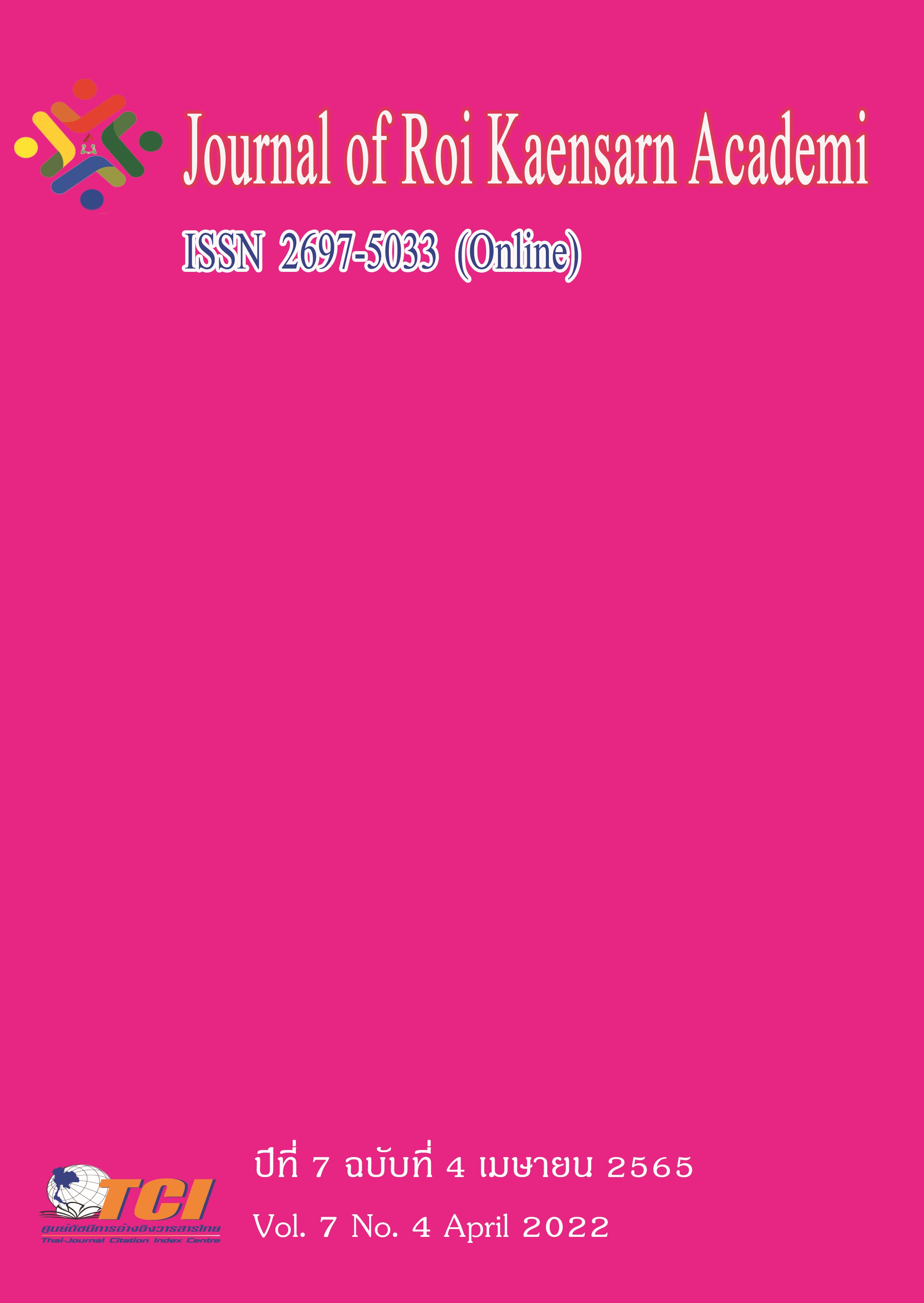The Development of Ability on English Reading and Writing for the 6th Years Class of Secondary Level by Using Directed Reading-Thinking Activity Model Together With Learning Performance on Brain Based Learning
Main Article Content
บทคัดย่อ
This study compares the English reading and writing abilities of twelfth grade students using the DR-TA strategy in combination with brain-based activities and learning management. This research was classified as experimental research and used a quasi-experimental design. This study involved fifty twelfth grade students at Assumption College, Samutprakarn. A randomized control group pretest-posttest was designed and the data analysis used a t-test for the dependent samples. The satisfaction questionnaire of students was used with the DR-TA strategy, in combination with brain-based activities and learning management. The results had a significant effect on English reading and writing by using the DR-TA strategy in combination with brain-based activities to the learning management of the experimental group had a mean score in terms of comparison. The mean score for reading was 10.28 and the posttest showed an increase to 15.04, the mean score for writing was 11.28, and the posttest showed an increase to 15.36 at a statistically significant level of .05. The experimental group was satisfied with the learning management model. The experimental group used the DR-TA strategy in combination with brain-based activities to learning management and satisfaction was at the highest level (4.62). Therefore, the hypothesis was accepted, which means that the DR-TA strategy in combination with brain-based activities to learning management had a significant effect on the reading and writing skills of the students.
Article Details
เอกสารอ้างอิง
Anchalee Jansem. (2016). The 21st Century Skills and Foreign Language Education: From Policies to Teachers. Journal of Library and Information Science Srinakharinwirot University. 2 (19), 114-123.
Harley, S. (2010). The Historical and Social Context of U.S. Middle School Education A Practical Guidebook for School Educators. In R. A. Joki (Ed.), ProQuest Dissertations and Theses: ProQuest Dissertations Publishing.
Jensen, E. (2009). Teaching with poverty in mind : what being poor does to kids' brains and what schools can do about it: Alexandria, Va. : ASCD.
Khrabrova Valentina, E. (2016). On using verbs appropriately in academic English writing. Studia humanitatis (Moscow), 4.
Kanyarat Horadee. (2014). Using constructivist learning to promote english reading and creative writing abilities among mathayom suksa 5 students. Retrieved from;http://library.cmu.ac.th/digital_collection/etheses/fulltext.php?id=28666&word=%A1%D2%C3%E0%A2%D5%C2%B9%C0%D2%C9%D2%CD%D1%A7%A1%C4%C9%E0%AA%D4%A7%CA%C3%E9%D2%A7%CA%C3%C3%A4%EC&check_field=_All_&select_study=TENG&condition=2&search=9&philosophy=ok&master=ok. Chaing Mai University.
Piyapong Promnont. (2015). A Study on the Development of Grade 11 students’ Reading, Creative English Writing Abilities and Satisfaction in Learning Based on Concentrated Language Encounter Instruction, Model III. Bangkok: Srinakharinwirot University.http://thesis.swu.ac.th/swuthesis/Ed_SLM/Piya pong_P.pdf
Shantz, Colleen. "12 Brain/Mind Learning Principles in Action: The Fieldbook for Making Connections, Teaching, and the Human Brain - Renate Nummela Caine, Geoffrey Caine, Carol McClintic, and Karl Klimek." Teaching Theology & Religion 9.3 (2006): 189-90. Web.
Stauffer, Russell G. The Language-experience Approach to the Teaching of Reading. 2nd ed. New York: Harper & Row, 1980. Print.
Tissana Kammanee. (2020). Science of Teaching Pedagogy. Chulalongkorn University.
Kitiiya Jindarat. (2018). A Comparison of Grade XI Students’ Reading, Creative Writing English Ability and Interest in Learning English Through Concentrated Language Encounter Approach (Model 3) and Traditional Approach. Bangkok: Srinakharinwirot University.

